
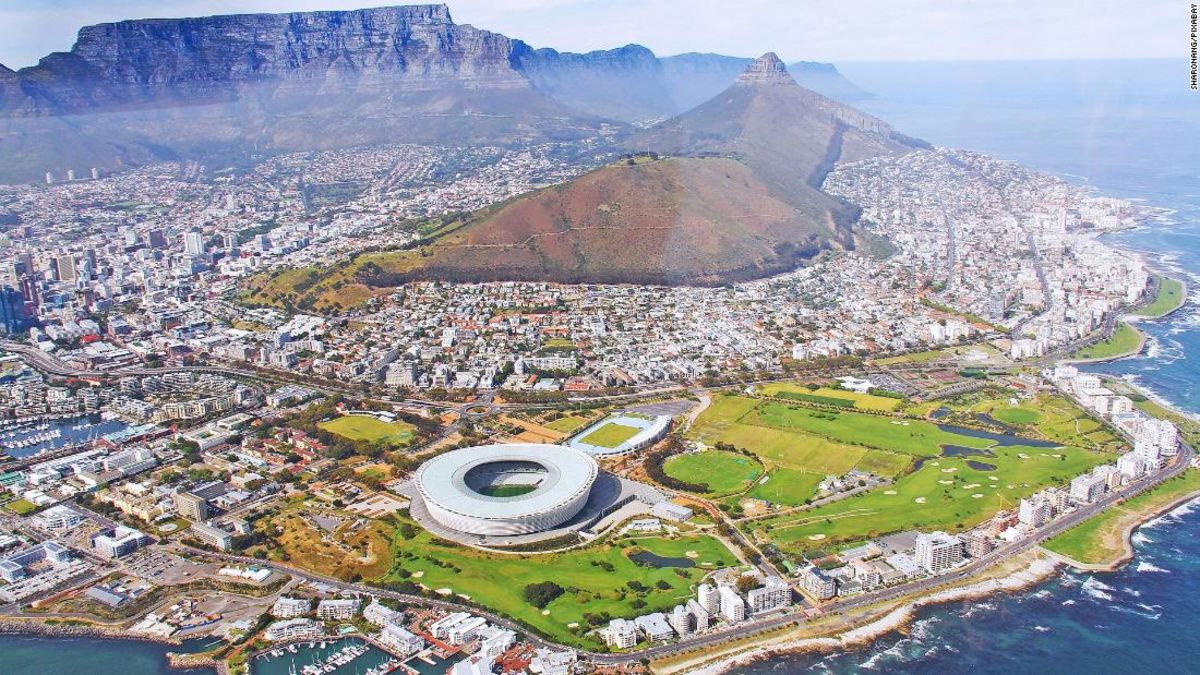
Driving transformation in tourism – the UNWTO call to action
Put yourself in the shoes of the 20th Century traveler; just a couple of years ago, the avid explorer would watch interesting programmes on TV or head to the library to research destinations. Then they’d head to a travel agent and browse brochures before making a booking. That would involve a trip to the bank, too, and then still another trip to the mall to get travel supplies and suitable clothing. All that traveling before even leaving home. Now, it’s possible to do all of that and more from your mobile phone or laptop. The world as we know it is changing, with technology disrupting how we explore the global village.
The African experience emerges
Across Africa, countries are coming online at a faster rate than any other continent on the planet, largely because we have lagged in developing the necessary infrastructure, but this is enabling young entrepreneurs to develop innovative travel solutions suitable to our own context. It’s creating jobs that didn’t exist 25 years ago and is at the very heart of a transformative revolution that spans many nations. Travelers and tourism professionals are, quite literally, holding their future in their hands.
The more African countries come online, and visitors can share their travel experiences via social media channels while traveling, the more we’re opening up to the global travel market. It may have been tricky to find out about certain countries previously, with very little being available even in libraries, but now you can follow a hashtag like #ExploreZambia (for example) and get a vivid explorer’s eye view for the land, to whet your appetite for travel.
The theme for the UNWTO’s World Tourism Day for 2018 is digital transformation in tourism, described by the organisation as “helping to put the opportunities provided to tourism, by technological advances including big data, artificial intelligence and digital platforms, on the map of sustainable development. The World Tourism Organization (UNWTO) sees digital advances and innovation as part of the solution to the challenge of marrying continued growth with a more sustainable and responsible tourism sector.”
Furthermore, UNWTO Secretary-General Zurab Pololikashvili has stated that harnessing innovation and digital advances provides tourism with opportunities to improve inclusiveness, local community empowerment, and efficient resource management, amongst other objectives within the wider sustainable development agenda, and those are critical elements to the development of which we are very much aware in South Africa.
Inclusivity – a call to action
Our innovative approach to addressing water shortages has proven that we’re capable when it comes to doing just that, with initiatives ranging from desalination projects to awareness campaigns that reinforce our activities. New technologies are breaking down barriers to access in business, such as on-the-go payment options like Yoco and Snapscan, widening opportunities for SMEs and making it easier for visitors to pay.
Another means by which we’re tackling transformation is within our neighborhoods, driving inclusivity by showcasing micro-tourism businesses so that the whole world can see what life is like in neighborhoods such as Langa, Gugulethu, and Khayelitsha, for example. This enables us to work with communities to ensure that the benefits of tourism don’t just dwell with larger tourism enterprises, but that SMEs can share in the economic impact.
Our journey to sustainability in tourism cannot be steered by one organisation or government department, it must be a factor that’s central to every business strategy. With increased access to remarkable technological solutions, we have no excuse for ignoring this call to action – the more energy we put into expanding our technological transformation, the more we’ll see entire communities benefiting, from increased economic rewards to job and entrepreneurial opportunities.
Enver Duminy is CEO of Cape Town Tourism and has been asked to share his vision at the UNWTO Summit in Seoul, Korea, in September 2018.
The African Tourism Board is in the process to bring Africa together. With Tony Smith, head of the iFREE Group,a global company pioneering new ways to stay connected in the world of travel and mobile communications joining the African initiative. From international calls and data roaming solutions to Wi-Fi connectivity and unique travel products, the iFREE Group has set a goal to break down barriers and bring the world closer together
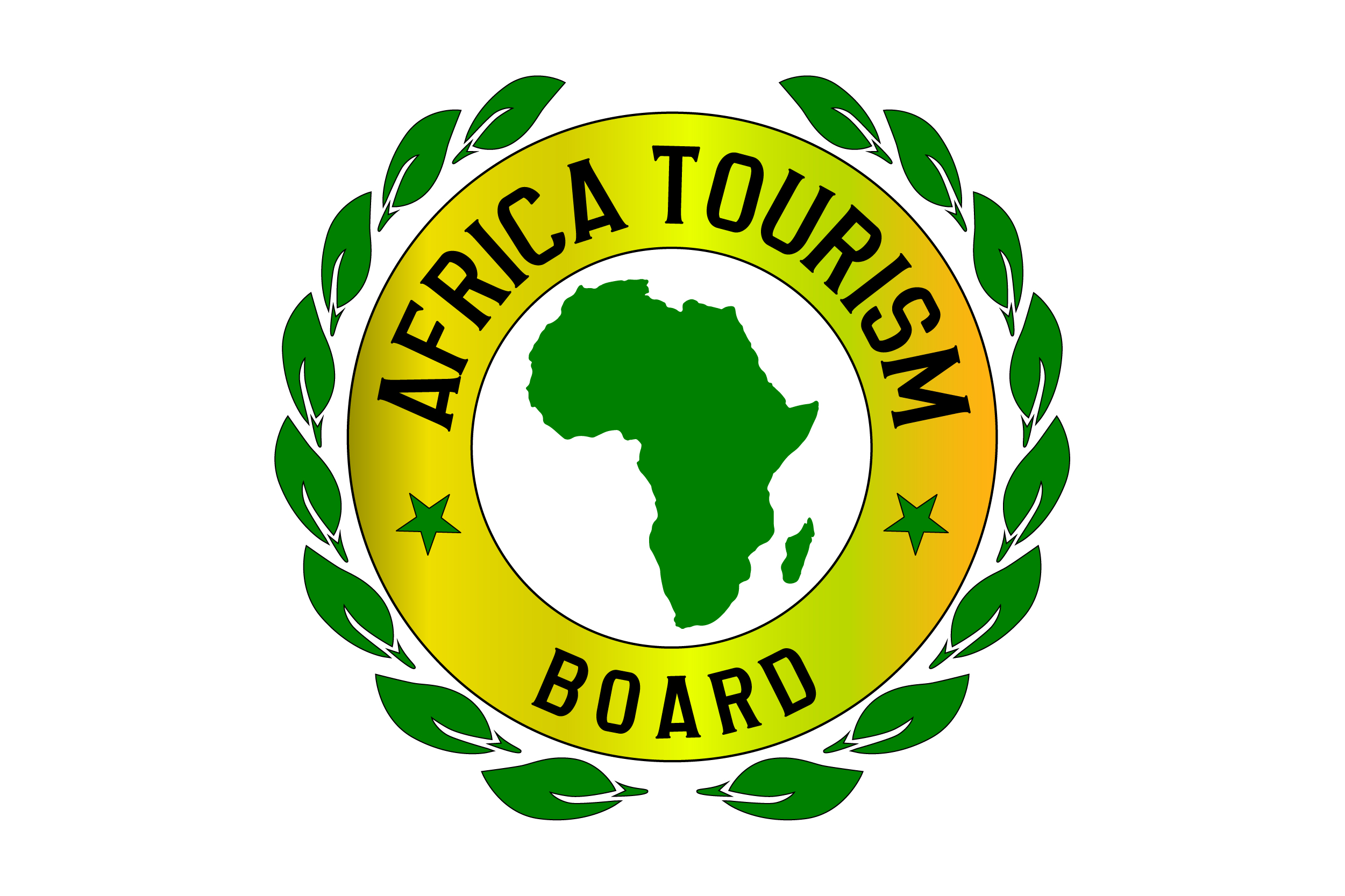
How the new African Tourism Board seeks to unite Africa and unlock its tourism potential
Carol Weaving, ATB Board member and managing director of ReedReed Exhibition, the organizer of the World Travel Market told the audience at the African Leadership Forum in Ghana last week: “I am proud to be a founding member of the African Tourism Board. The African Tourism is an association that was formed in acting as a catalyst for the responsible development of travel to and from and within the African Continent.”
Africa is beautiful, but the future of the continent’s economy is dependent on how the potential of tourism is properly harnessed. The continent is one of the most beautiful destinations in the world. However its tourism competitiveness is below its potential and despite the great progress that has been made, the tourism industry on the African continent remains behind other regions in terms of competitiveness.
If there is a continent under the sun that is blessed with tourism potential, it is African. From the spectacular natural beauty of the Drakensberg mountains of South Africa to the ancient pyramids of Egypt, from the cradle of mankind of the Ethiopian rift valley to the rushing sand dunes of the Namib desert, from the world’s best white sandy beaches of the Seychelles to the Historical Gold Coast of West Africa, from the smoke thundering water spray of the Mighty Victoria Falls to the rich Serengeti plains overflowing with wild animals still roaming the wilderness as it was at the beginning, these are some of the unspoilt wonders that Africa still offers humanity beyond comparison to any other continent.
The tourism riches of this continent are unimaginable. However, it is unimaginable as to why the African region is not competitive and gets less than 5% share in worldwide arrivals and not more than 3% share in tourism receipts.
This calls for a radical change in the continent’s approach to tourism policy formulations, implementation, and development in all destinations and at the continental level.
If Africa’s tourism industry has to make a meaningful contribution to United Nations 2030 Agenda for Sustainable Development and the African Union Agenda 2063 dubbed “the Africa we want” it calls for a unity of purpose to work together and make the continent competitive.
That is why a regional Organisation is needed to provide a dialogue mechanism between the public and private tourism stakeholders and academia within a coherent framework to give guidance in building and strengthening tourism competitiveness policies and strategies. To this end:
Aware of the global significance of the tourism industry as the world’s largest and fastest growing industry that has proved to have the power to contribute to the social-cultural and economic development and also forms an excellent instrument for promoting economic emancipation, understanding, goodwill and foster closer relations among different peoples of the world.
Conscious of Africa’s share of the world tourism receipts and global standing is below its perceived potential.
Acknowledging that the need to bolster international development cooperation through projects and programs aimed at increasing the benefits of tourism for the less privileged societies of our Region.
Desiring to promote the integration of the four dimensions of sustainable tourism development, economic growth and the end of poverty, social inclusion environmental sustainability and good governance, towards the achievement of the United Nations 17 Global Goals for Sustainable Development.
Mindful of the region’s rich tourism potential which offers an array of natural and man-made tourism products. Added to all these the region’s diversity of history and cultural heritage.
Deeply concerned that most of this potential remains underdeveloped and, therefore, not contributing to the economic well-being of the people of the Region.
Convinced that the realization of Africa’s tourism potential can only be achieved through unity of purpose, collective and concerted efforts by all stakeholders in the 54 countries that make up this great continent.
Wishing to contribute, through common action in tourism development, to the progress and wellbeing of the peoples of the Region
Recognizing and Considering the efforts of the international organisations’ key industry players such as World Tourism Organisation (UNWTO), World Travel & Tourism Council (WTTC) play in advancing tourism development on the region.
Appreciating the role of the regional body of the African Union (AU) plays in advocating for tourism development on the Region
The African Tourism Board founded in 2018 by the International Coalition of Tourism Partners is a regional organisation with an international character for both private and public sector firmed on acting as a catalyst for the development of responsible tourism and travel within, to and from the African region resulting from stakeholders desire to move with a unity of purpose on tourism development in Africa.
The fundamental aim of the Organisation is to advocate for the sustainable development and promotion of tourism as a driver for social-economic development of the Africa Region. Further to be a leading voice and advocacy authority on tourism development in Africa.
The fundamental objectives of the Organisation are to:
- Promote regional and international understanding, peace, prosperity, and universal respect for all,
- Advocate for the observance of human rights and fundamental freedoms for all without discrimination based on race, sex, language or religion.
- Provide support to members and partners that are targeted at sustainable tourism development
- Foster public-private partnerships and contribute to the safeguarding of natural, cultural and man-made tourism products of the Region.
- Promote tourism education, training, and research
In its day to day operations, the Organization shall focus on organizing, engaging and carry out tourism activities that encourage socially, economically, and ecologically sustainable tourism activities, and that contribute to eliminating poverty and inequalities through the implementation of concrete projects. To accomplish this strategic goal the Organization shall seek to embark on but not limited to the following activities:
- Conduct promotions, events for fundraising purposes, and other self-financed activities.
- Conduct research and forums in association with the public, private, and international communities and publish reports that will form a basis for decision making.
- Strengthen regional and international cooperation by encouraging public-private partnerships that contribute to the development of Africa;
- Collaborate in the implementation of tourism projects done by other executing agencies which have similar purposes and activities.
- Support research and innovative tourism projects that meet international standards;
- Cooperate and carry out projects and activities with other stakeholders focusing on sports, culture, education, and human resources development as they relate to sustainable tourism development.
- Provide training, operational support, technical assistance, human resources development, and tourism development programs aimed at bridging the gap between the rich and the poor
- Identification of tourism investment opportunities and the preparation of investment plans, to benefiting members and
- Implement other activities in line with the Organization’s aims and objectives
Membership is open to both Public and Private Institutions and individuals. To join the movement go to https://africantourismboard.com/join/
For more information on the African Tourism Board visit www.africantourismboard.com or email: [email protected]
Facebook: click here Twitter: @AfricanTourismB
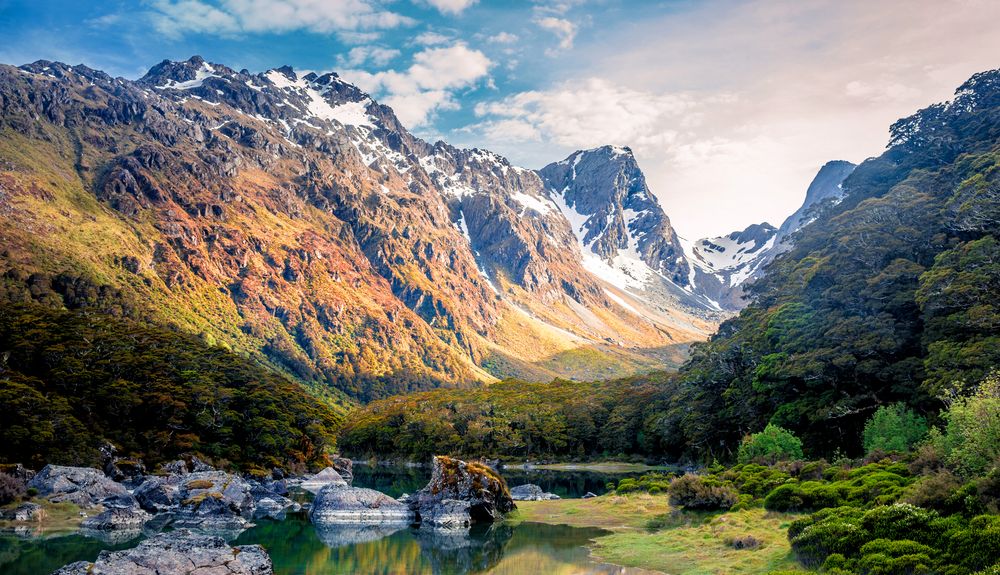
Travel & Tourism generated 18% of New Zealand’s GDP in 2017
Travel & Tourism generated 18% of New Zealand’s GDP in 2017 Research published by the World Travel & Tourism Council has shown that in 2017, the total contribution of Travel & Tourism accounted for 17.9% (NZD$47.5bn) of New Zealand’s GDP. This figure is set to rise by 2.9% per annum and forecast to account for 20% of New Zealand GDP over the next decade.
Other highlights of the report show:
Travel & Tourism supported 212,000 jobs in 2017 (8.8% of total employment). By 2028, over 275,000 of jobs in New Zealand (10.9% of total employment) are forecast to be dependent on Travel & Tourism. The travel sector grew by 3.2% in 2017, faster than the economy as a whole which grew at 2.9% in the total wider economy. New Zealand is the 32nd largest travel economy in the world.
Gloria Guevara, President & CEO, WTTC, said “Travel & Tourism creates jobs, drives economic growth and helps build better societies. New Zealand is a prime example of this, as the country and its natural beauty is expected to attract over 2.7 million international tourist arrivals in 2018 alone. This represents a 3.9% economic increase from 2017 where visitor exports were responsible for generating NZD14.5bn (USD10bn).
Tourism has risen up the agenda in New Zealand over recent years and I commend the government on its support for the sector. Going forward it will be vital for public and private sectors to continue to work together, with the close involvement of communities, to ensure that tourism growth is sustainable, inclusive and benefits everyone.”

Ghana Tourism Minister: Now a board member of the African Tourism Board
The Hon. Catherine Ablema Afeku, Minister of Tourism for Ghana, recently joined the African Tourism Board (ATB) as a board member.
Founded in 2018 as a project of the International Coalition of Tourism Partners (ICTP) , the African Tourism Board is an association that is internationally acclaimed for acting as a catalyst for the responsible development of travel and tourism to and from the African region.
The Hon. Afeku is a member of the New Patriotic Party and a Member of Parliament for the Evalue Gwira Constituency in the Western Region.
She was born at Axim and obtained a Master of Business Administration degree from the Keller Graduate School of Management of DeVry University in Atlanta, Georgia, USA, in the year 2000.
The African Tourism Board provides aligned advocacy, insightful research, and innovative events to its members. In partnership with private and public sector members, ATB enhances the sustainable growth, value, and quality of travel and tourism to, from, and within Africa.
The association provides leadership and counsel on an individual and collective basis to its member organizations and is expanding on opportunities for marketing, public relations, investments, branding, promoting, and establishing niche markets.
The ATB is currently involved in tourism security and wellness summit in member countries, PR and marketing, media outreach, trade show participation, road shows, webinars, and MICE Africa.
The official launch of the organization is planned for later this year.
To learn more about the African Tourism Board, how to join and get involved, click here.
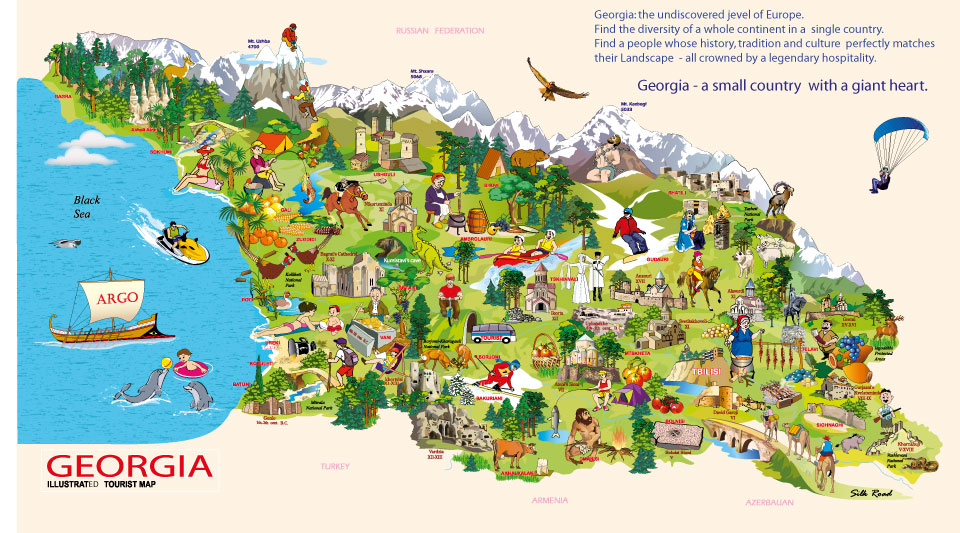
How Georgia detects genuine human emotions to promote Tourism?
The country of Georgia has developed Artificial Intelligence that detects genuine human emotions in social media and has created the most accurate guidebook based on the posts by 7,000,000+ tourists.
During 6 months of intense work, a complex Artificial Intelligence tool was detecting, analyzing and sorting the most genuine human emotions through social media posts of more than 7,000,000 travelers, who shared their impressions about Georgia. These were then used to create the most emotional and accurate guidebook of the country.
The campaign, ‘Emotions are Georgia’, was launched on July 18th, 2018 by Georgian National Tourism Administration (GNTA). At the event, both printed and interactive digital versions of the guidebook were presented.
“Georgia is famous for its hospitality. We love sharing our country with our guests and they, in return, enjoy sharing photos and stories of their journey. These are straightforward, heartfelt and uncensored “reviews”, written not by professional travel writers, but by regular tourists – travelers from all around the world, who’ve actually visited our country.”
Giorgi Chogovadze, Head of Georgian National Tourism Administration
“The main feature of the web-platform is the option to GENERATE YOUR OWN GUIDEBOOK of Georgia. By giving the website access to your basic Facebook information or by simply answering some quick questions, the website analyzes not just your interests, but finds similarities and matches them with the interests of the posts authors, generating the most relevant guidebook for you.”
Vato Kavtaradze, Chief Creative Officer of WINDFOR’S Communication
In 2017, the number of international visitors of Georgia increased by 1,182,534 compared to the previous year and exceeded the record-breaking number of 7 million. One of the reasons for this is the previous collaboration of GNTA and WINDFOR’S. The campaign #emotionsareGeorgia aims to result even more growth in international tourism.
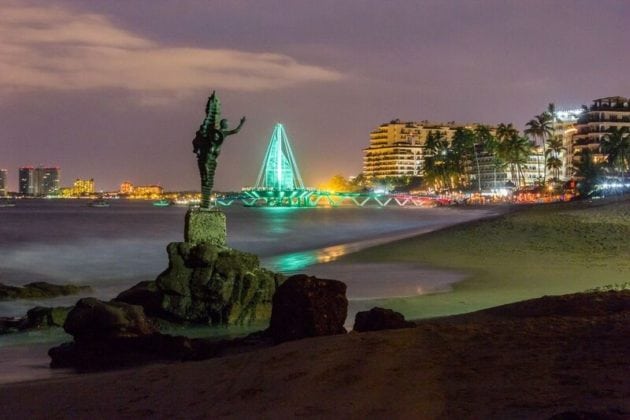
Puerto Vallarta’s Historic Center declared Cultural Heritage of the State of Jalisco
Puerto Vallarta’s Historic Center is now a protected Cultural Heritage of the Mexican State of Jalisco. The declaration was made by the state’s Department of Culture on July 21 via the official journal of Jalisco and makes the center of the city a protected area, with all the rights and privileges of a heritage protected by state and federal laws.
The recognition includes the area from the beginning of the Malecon — where the oldest hotel in Puerto Vallarta, the hotel Rosita, stands — and continues to the cobblestoned Romantic Zone and up to the historic Conchas Chinas neighborhoods. Each area is of special historical significance to Puerto Vallarta, Jalisco and Mexico, as well as the essence of the port city, which is in the midst of celebrating its centennial.
According to the State of Jalisco, this proclamation is a step to further preserve the architectural elements of patrimonial value and image and essential characteristics of the typical town on the seashore, one of the unique qualities of Puerto Vallarta, known as the “most Mexican” beach destination.
“Puerto Vallarta’s historic center is the heart of our city and a major attraction to our visitors and, like all world heritage sites, it must be recognized as an irreplaceable part of our legacy,” said Javier Aranda Pedrero, Director of the Puerto Vallarta Tourism Board. “We applaud the actions taken by Jalisco’s Department of Culture and welcome everyone to enjoy this iconic part of the city.”
The center of Puerto Vallarta is much loved by the people of Vallarta and appreciated by visitors, as it retains authentic characteristics of a traditional Mexican town, in its cobblestone streets and colonial architecture. Of particular interest is the Church of the Virgin of Guadalupe, the city’s central plaza, Los Muertos Pier and colonial homes that date back hundreds of years. Puerto Vallarta’s historic center is a place full of life where neighbors coexist and mix with tourists who enjoy strolls along a boardwalk lined with sculptures, paintings and other works of art.
At dusk, the center is full of locals out for a stroll, heading for church services or dinner. Mixing with them, visitors can soak in the most beautiful sunsets on the Pacific; gaze at bobbing sailboats and the emblematic Marigalante pirate ship; and dig into roasted corn, mangoes with chili, cakes, tuba water and many other appetizers and desserts. All these attractions are located on the boardwalk and neighboring downtown streets, which for many reasons already was — official proclamation or not — a cultural heritage jewel of Jalisco.
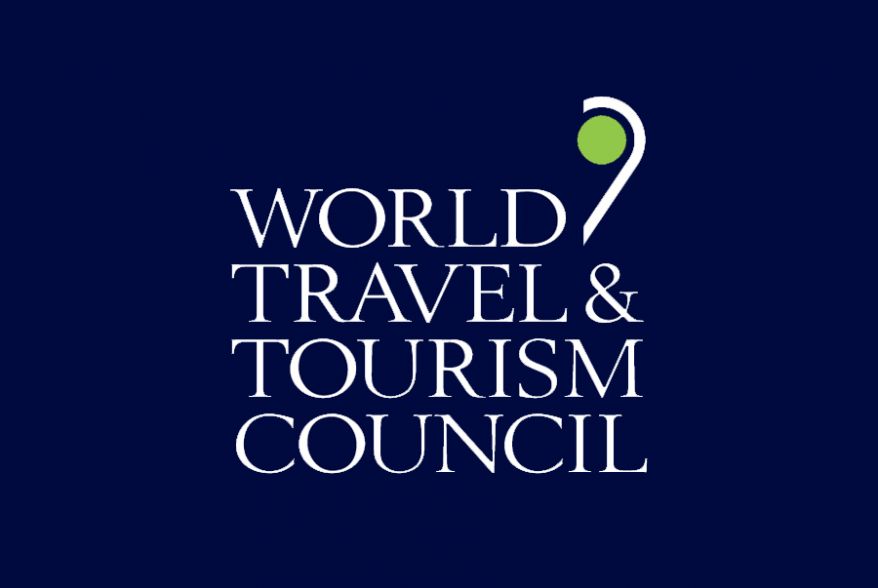
CEOs of Thomas Cook and MSC Cruises to speak at WTTC’s European Leaders Forum
The World Travel & Tourism Council (WTTC) today announces that global leaders from the Travel & Tourism industry will meet at the first WTTC European Leaders Forum in Lisbon, Portugal on 11 September 2018.
Hosted by Ana Mendes Godinho, Secretary of State for Tourism in Portugal, and Turismo de Portugal, this invitation-only event will bring together the CEOs and regional leaders of the top Travel & Tourism companies from across Europe, along with Tourism Ministers and regional experts.
The WTTC European Leaders Forum will engage a select group of leaders who will discuss four of the key issues facing the region’s Travel & Tourism sector: tourism’s role in sustainable urban development, tourism and the future of work, unlocking investment in Europe’s tourism, and supporting innovation in tourism.
H.E Manuel Caldeira Cabral, Minister of Economy, Portugal, H.E Ana Mendes Godinho, Secretary of State for Tourism, Portugal, Peter Fankhauser, CEO, Thomas Cook Group, and Pierfrancesco Vago, Executive Chairman, MSC Cruises will be joined on stage by; Kike Sarasola, President & Founder, Room Mate Hotels & BeMate.com; Robert Swade, CEO, Grace Hotels; Andrea Grisdale, CEO, IC Bellagio; and Mário Ferreira, CEO Mystic Invest, Alain Dupeyras, Head of the Regional Development and Tourism Division, OECD, Aradhana Khowala, CEO & Founder, Aptamind Partners, Miguel Leitmann, Founder & CEO, Vision-Box, Kimmo Maki, President & CEO, Finavia, Ian Taylor, Executive Editor, Travel Weekly, Enrique Ybarra, Founder, President & CEO, City Sightseeing Worldwide, Luís Araújo, President, Turismo de Portugal; Robin Rossmann, Managing Director, STR; Öznur Özdemir Özaltin, Chief Executive, Özaltin Holding (Tourism Group), Ozaltin Holding, Tim Moonen, Manging Director, The Business of Cities.
Gloria Guevara, President & CEO, WTTC, said “We are delighted to be holding our first WTTC Europe Leaders Forum in Lisbon, Portugal. Europe is the largest and most mature tourism market in the world, with tourism generating Euro 1.8 trillion to European economies and supporting 36.6 million jobs. Throughout Europe, Travel & Tourism creates jobs, drives economic growth and helps build better societies. This is particularly the case in Portugal, where Travel & Tourism accounted for 17.3% of GDP in 2017 (USD38.0bn) and generates 1 in 5 of the country’s jobs.
“The outputs from the European Leaders Forum will inform WTTC’s future work in the region and provide a unique and exclusive space for networking amongst the leaders in attendance,” commented Gloria Guevara, WTTC President & CEO. “We look forward to a productive and engaging forum and thank Ana Mendes Godinho and Turismo de Portugal for their continued support.”
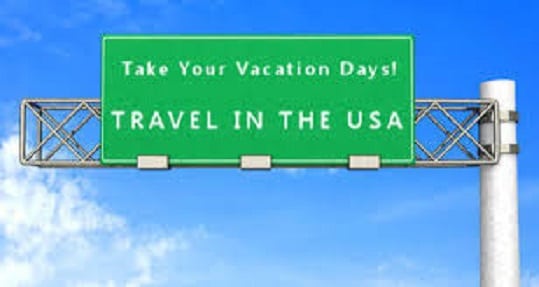
Strength of domestic US travel lessens sting of sluggish international growth
Travel to and within the US grew four percent year-over-year in June, according to the US Travel Association’s latest Travel Trends Index (TTI)—marking the industry’s 102nd straight month of overall expansion.
Despite this positive trend, US Travel economists remain wary that growth of international inbound travel to the US is not keeping pace with the global long-haul travel boom.
Most notable in the TTI is the strength of domestic business and leisure travel, buoyed by near-historic highs in consumer confidence and growth in forward-looking bookings and searches. According to the Leading Travel Index, domestic travel is expected to increase by approximately 2.6 percent in the next six months. While this is good, there are reasons to believe that the elevated level of consumer confidence may be short-lived.
“For the first time in the history of the Travel Trends Index, both the business and leisure segments of domestic travel expanded every month during the first half of the year,” said US Travel Senior Vice President for Research David Huether. “However, rising oil prices and trade uncertainty—particularly with regard to tariffs—have the potential to dampen consumer confidence.”
Through the end of the year, international inbound travel to the US is expected to continue to grow at a rate of 2.2 percent. However, US Travel economists note that the US is well off the pace of long-haul travel worldwide, projected to increase six percent in 2018.
Also, US Travel researchers say, storm clouds continue to gather in the form of trade tensions and rising oil prices.
“Facing these potential headwinds, we urge officials to support policies and messaging that will make clear to the world that the US is open and eager for business,” said Huether.
Despite solid economic activity bolstering both domestic and international travel through the first half of the year, the rate of growth is not brisk enough to help the US regain its slipping share of the global travel market.
The TTI is prepared for US Travel by the research firm Oxford Economics. The TTI is based on public and private sector source data which are subject to revision by the source agency. The TTI draws from: advance search and bookings data from ADARA and nSight; airline bookings data from the Airlines Reporting Corporation (ARC); IATA, OAG and other tabulations of international inbound travel to the US; and hotel room demand data from STR.
Click here to read the full report.
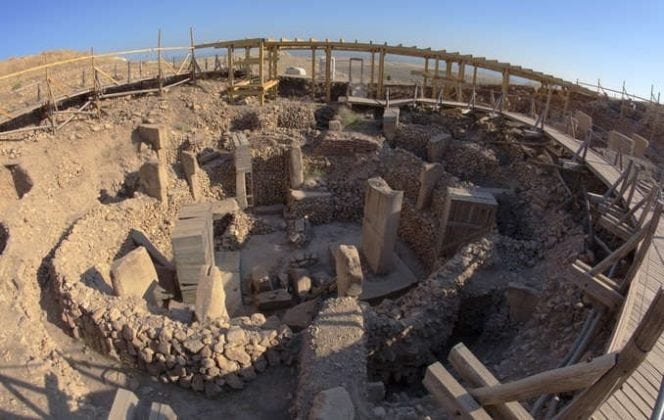
Gobekli Tepe in Turkey added to UNESCO World Heritage List
Gobekli Tepe, considered “The Oldest Temple in the World,” has been added to the UNESCO World Heritage List, making this the 18th UNESCO recognized site in Turkey. The inscription took place during the 42nd World Heritage Committee meeting in Manama Krakow, Bahrain, recently.
According to UNESCO, Gobekli Tepe, in the Germus mountains of south-eastern Anatolia, presents “monumental circular and rectangular megalithic structures, interpreted as enclosures, which were erected by hunter-gatherers in the Pre-Pottery Neolithic age between 9,600 and 8,200 BC.”
“It is likely that these monuments were used in connection with rituals, probably of a funerary nature. Distinctive T-shaped pillars are carved with images of wild animals, providing insight into the way of life and beliefs of people living in Upper Mesopotamia about 11,500 years ago,” the UNESCO listing said.
Discovered during excavations by researchers from Istanbul and Chicago universities, Göbekli Tepe is located near the neighborhood of Örencik in Şanliurfa, 11 miles from the city center. Excavations have continued for 54 years, and many international institutions recognize the site to be “the oldest temple in the world.”
There is a great mystery behind Gobekli Tepe, but what makes it most intriguing is not its large size, its inaccessibility or the beauty of its monuments,” said officials at The Ministry of Culture and Tourism of Turkey. “It is the 12,000-year history that dates it to 10,000 years before the founding of the Roman Empire, 8,000 years before the appearance of the Hittites, and 7,000 years before the Great Pyramids.”
Other Turkish sites added to the UNESCO’s World Heritage List include:
• 2017 – Aphrodisias
• 2016 – Archaeological Site of Ani
• 2015 – Diyarbakır Fortress and Hevsel Gardens Cultural Landscape
• 2015 – Ephesus
• 2014 – Bursa and Cumalikizik: the Birth of the Ottoman Empire
• 2014 – Pergamon and its Multi-Layered Cultural Landscape
• 2012 – Neolithic Site of Çatalhöyük
• 2011 – Selimiye Mosque and its Social Complex
• 1998 – Archaeological Site of Troy
• 1998 – Hierapolis-Pamukkale
• 1994 – City of Safranbolu
• 1988 – Xanthos-Letoon
• 1987 – Nemrut Mountain
• 1986 – Hattusha: The Hittite Capital
• 1985 – Great Mosque and Hospital of Divrigi
• 1985 – Historic Areas of Istanbul
• 1985 – Göreme National Park and the Rock Sites of Cappadocia
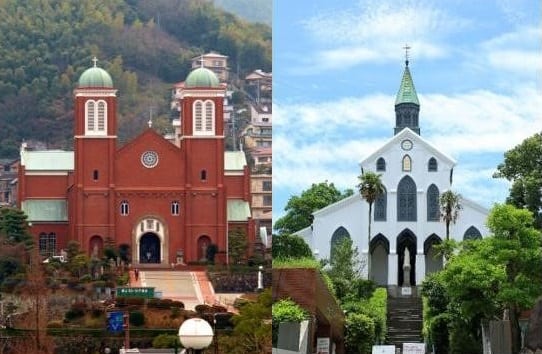
UNESCO designates Japan’s 18th World Cultural Heritage Site
UNESCO has designated a series of sites associated with the checkered history of Christians in 16th- to 19th-century Japan as the country’s 18th World Cultural Heritage Site. The “site” is comprised of 10 villages in northwest Kyushu, as well as the ruins of Hara Castle – originally built by the Portuguese – and St. Mary’s Cathedral of the Immaculate Conception in the city of Nagasaki.
Because the practice of Christianity was banned in Japan until 1873, Christians (known as Kakure Kirishitan) worshipped – and missionaries spread the gospel – in secret. It is the sites’ “secret” churches in remote seacoast “Christian” villages and isolated islands that are the main component of UNESCO’s recognition. The ruins of Hara Castle are another element, as it was used by Portuguese and Dutch missionaries.
One of the most visible examples of UNESCO’s designation is Nagasaki’s Roman Catholic St. Mary’s Cathedral – also known as the Cathedral of the Immaculate Conception – built in 1914 after the ban on Christianity was lifted. The original cathedral was destroyed by the atomic bomb that fell on Nagasaki in August 1945 and a replica of the original was consecrated in 1959. Statues and artifacts damaged in the bombing, including a French Angelus bell, are now displayed on the grounds (and at the Cathedral of the Immaculate Conception). The nearby Peace Park contains remnants of the original cathedral’s walls. Oura Church is another Catholic church in Nagasaki. Built towards the end of the Edo Period in 1864 by a French missionary for the growing community of foreign merchants in the city, it is considered the oldest standing Christian church in Japan and one of the country’s greatest national treasures.
Historically, Nagasaki was long the initial entryway for foreigners to Japan. It was in Nagasaki in 1859, after the United States’ Commodore Perry used gunboat diplomacy to demand an end to Japan’s more than 200-year-old policy of isolation, that diplomats from countries around the world came to demand that the port be opened to trade. Thereafter, Emperor Meiji declared Nagasaki a free port in 1859. And it was Nagasaki that was the setting for John Luther Long’s 1898 novel, Madame Butterfly, which, in 1904, was transformed into an opera by Giacomo Puccini, and remains one of the world’s most beloved operas.
